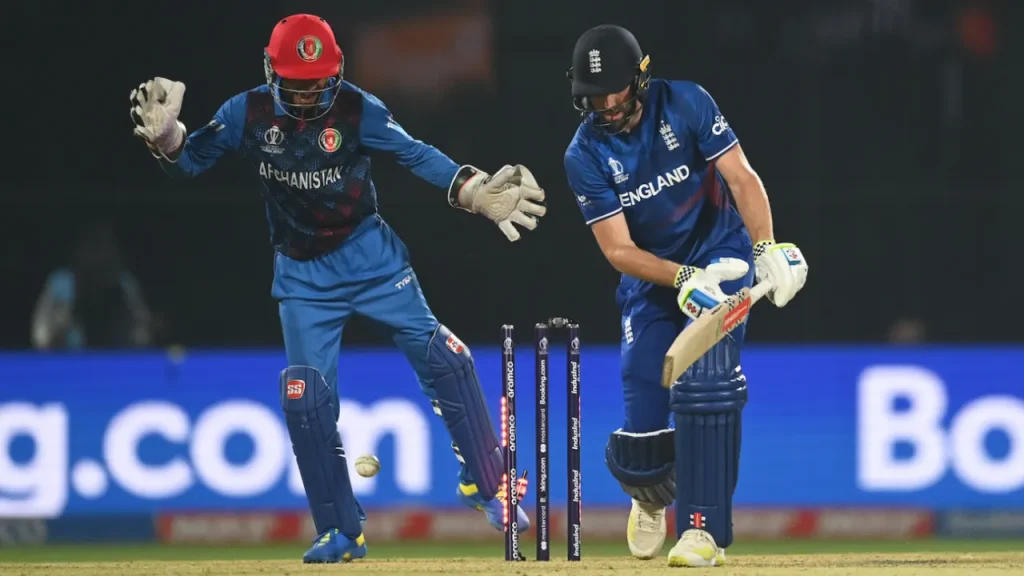The International Cricket Council (ICC) is facing growing pressure to address Afghanistan’s human rights issues, especially concerning the ban on women’s sports under the Taliban regime. The controversy has gained momentum as England prepares to face Afghanistan in the 2025 Champions Trophy in Lahore, sparking global debate about cricket’s role in advocating for social justice.
The Controversy: Cricket Amidst a Human Rights Crisis
Afghanistan’s women have been systematically excluded from sports, including cricket, since the Taliban regained power in 2021. This has raised questions about Afghanistan’s eligibility to participate in international cricket, as ICC rules mandate a commitment to the growth of women’s cricket for full member nations.
The issue has taken center stage with a scheduled clash between England and Afghanistan in the Champions Trophy. While some argue for a boycott to protest human rights abuses, others emphasize the broader impact of cricket on Afghan society.
UK Prime Minister’s Stance
UK Prime Minister Keir Starmer has urged the ICC to “deliver on their own rules” regarding women’s rights in Afghanistan. His comments came after a letter from a cross-party group of more than 160 politicians called on England’s cricket board, the ECB, to take action.
The letter criticized the Taliban’s “sex apartheid” and urged the ECB to boycott the match against Afghanistan to send a strong message of solidarity with Afghan women and girls.
“We strongly urge the ECB to consider a boycott of the upcoming match against Afghanistan. Such grotesque abuses cannot be tolerated,” the letter stated.
The ECB’s Response
The ECB has rejected calls for a boycott, stating that the issue requires a “coordinated, ICC-led response” rather than unilateral action by individual countries.
Key Points from the ECB’s Statement:
- The ECB condemns the treatment of women and girls in Afghanistan under the Taliban regime.
- They have no plans to schedule bilateral series with Afghanistan as long as the Taliban remains in power.
- A boycott of ICC events, however, is not within their jurisdiction and could harm Afghan cricket fans, including those displaced by the crisis.
- The ECB will advocate for collective action within the ICC to address the issue.
“Cricket is a source of hope for many Afghans, including those displaced. The ECB is committed to exploring solutions that uphold women’s rights while considering the broader impact on Afghan society,” said ECB chief executive Richard Gould.
The ICC’s Role: Are Rules Being Enforced?
The ICC has faced criticism for its silence on Afghanistan’s treatment of women. As per its constitution, member nations must commit to the development of women’s cricket. However, Afghanistan has yet to face significant consequences for failing to meet this requirement.
Challenges for the ICC:
- Balancing the promotion of cricket in Afghanistan with addressing human rights violations.
- Avoiding actions that could further isolate Afghanistan’s cricketing community, which serves as a rare unifying force in the country.
- Handling mounting pressure from governments, activists, and cricket boards to enforce its rules.
Historical Parallels: Zimbabwe 2003
This controversy echoes the dilemma faced by England during the 2003 Cricket World Cup, when they were urged to boycott their group-stage match against Zimbabwe due to human rights abuses under Robert Mugabe’s regime.
The England team ultimately forfeited the match, costing them a chance to progress in the tournament. The decision highlights the complex interplay between sports and politics, a challenge the ICC faces once again.
Cricket as a Beacon of Hope in Afghanistan
For many Afghans, cricket is more than just a sport—it’s a source of hope, unity, and pride. The national team’s participation in international tournaments provides a rare sense of normalcy and inspiration in a country plagued by conflict.
However, critics argue that allowing Afghanistan to compete without addressing its failure to support women’s cricket sends the wrong message.
What’s Next for the ICC?
The ICC must navigate a delicate path forward. Key actions it could consider include:
- Establishing Clear Consequences:
Enforce penalties on member nations that fail to meet women’s cricket development requirements. - Advocating for Women’s Inclusion:
Work with Afghanistan’s cricket board to develop a roadmap for the inclusion of women in cricket, even in limited capacities. - Encouraging Dialogue:
Facilitate discussions between cricket boards, governments, and activists to address the broader implications of human rights violations. - Avoiding Isolation:
Ensure that cricket remains accessible to the Afghan people while taking a firm stance on women’s rights.
FAQs on ICC and Afghanistan Women’s Cricket
1. Why is Afghanistan’s participation in cricket controversial?
Since the Taliban regained power in 2021, women’s sports, including cricket, have been banned in Afghanistan, violating ICC rules that mandate a commitment to women’s cricket development.
2. Why hasn’t the ICC taken action against Afghanistan?
The ICC has yet to enforce its rules on women’s cricket, citing the complexity of the situation. Critics argue this inaction undermines the ICC’s credibility.
3. What is the ECB’s position on this issue?
The ECB condemns Afghanistan’s treatment of women but believes unilateral actions, like a boycott, are less effective than coordinated efforts led by the ICC.
4. Could cricket boycotts help Afghan women?
Opinions are divided. While boycotts could send a strong message, some believe they may further isolate Afghan society and harm cricket fans who see the sport as a rare positive force.
5. What steps can the ICC take?
The ICC could enforce penalties for non-compliance, advocate for women’s inclusion in cricket, and work with Afghanistan’s cricket board to develop long-term solutions.
Final Thoughts:
The ICC’s handling of Afghanistan’s participation in international cricket amid human rights violations is a test of its commitment to its own principles. While cricket offers hope to many Afghans, the absence of women’s sports is a glaring issue that cannot be ignored. As the world watches, the ICC must strike a balance between inclusivity and accountability.
For the latest updates and insights on global cricket, visit FindCric.com!

